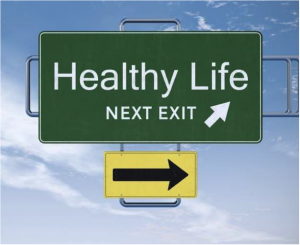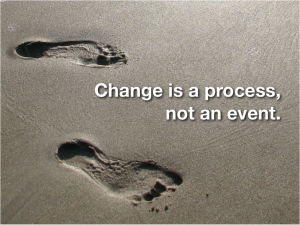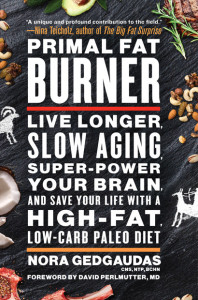 Reclaim Your Primal Birthright…take the Primal Body Primal Mind 30-Day Challenge and Greet 2013 with A Healthier YOU!
Reclaim Your Primal Birthright…take the Primal Body Primal Mind 30-Day Challenge and Greet 2013 with A Healthier YOU!
So you’ve outlived the end of that Mayan calendar and are ready to greet the new cycle and the New Year with a whole new lease on life! RIGHT?
Before introducing the challenge, I’d like to remind you to please consult with your natural healthcare provider before getting started with this challenge if you have severe blood sugar issues, clinical hypoglycemia, alcoholism, or similar health issues. There may be certain accommodations or changes you need to make to compensate for those. The same applies if you have any other series health issue, gallbladder attacks, kidney stones, or serious pain in your right upper ribcage area (this may indicate gallbladder problems and should be addressed by a qualified healthcare provider). This may also not be an appropriate challenge for those who are seriously ill or who are pregnant or nursing, as making sudden changes in your diet may not be advisable. Please consult with your doctor or natural healthcare provider to be sure! I don’t recommend that children or teens necessarily restrict protein or calories, although I still think restriction of carbohydrates of sugar and starch is highly desirable.
I’d also like to encourage anyone reading this who has not read my book, Primal Body, Primal Mind: Beyond the Paleo Diet for Total Health and A Longer Life to do so. Believe me when I say I’m not just trying to sell books when I say this. Despite what you might think you need more than just being told “what to do” in order to be successful. You also need to really understand the “why’s” to really get it in your bones so that you can better sustain the course over the long haul. Otherwise, sooner or later temptation, peer pressure and the familiarity of old habits will call to you from the depths of your muddled psyche and eventually override your blind resolve. Trust me on this.
Okay, all that being said, the challenge consists of 5 things to avoid, and 5 things to do every day for the next 30 days. We’ll start with the no-no’s:
AVOID THESE 5 THINGS FOR 30 DAYS:
1. Sugars
2. Starches
3. Gluten
4. Processed Foods
5. Bad Fats
1. Do Not Eat Sugars
This includes obvious things like sugary desserts and processed snacks (along with juices, sports drinks and sodas), but also most fruit. A handful of berries might be okay but ideally, (and especially if you have any issues with blood sugar or weight or diabetes) I would even get rid of the fruit at least temporarily.
2. Do Not Eat Starch
Starch includes grains of all kinds (even the gluten-free variety or so called “safe starch”), rice, pasta, potatoes, breads, cereals, and beans/legumes). This also includes the other starchy root vegetables.
3. Do Not Eat Gluten
No gluten. That’s 100%…not “99%”. To find the hidden sources of gluten (because it’s hidden in so many processed foods and so many other things) you may need to go online and you can also look up more details about this in my book. My book also goes into considerable detail as to why this may be one of the single most positive and critically important things you can possibly do for your health, and why it can really help you dodge some major bullets.
4. Do Not Eat Processed Foods
The exception to this is things such as certain quality condiments including Coconut Aminos® (instead of tamari or soy sauce) or, say, simple, high quality prepared mustards which have only 4 or 5 ingredients that you can actually pronounce. They should also preferably be gluten free. Things like quality organic Balsamic vinegar are fine. Stay away from getting your meals from a cardboard box and from the frozen dinner section in the grocery store. Focus instead on real, whole food.
5. Do Not Use Hydrogenated/Partially Hydrogenated or Overly Processed Vegetable Oils or Rancid Fats
Remember that ALL commercial canola and soybean oils (apart from being genetically modified, which is bad enough) are partially hydrogenated as part of their deodorization process. Be especially leery of concoctions in so-called natural food deli’s, which are inexplicably rife with canola oil. ALWAYS read ingredient labels and don’t just rely on the “trans-fat free” label. They are often misleading. Also, avoid most processed vegetable oils. Just stick with the ones I’ve mentioned above. Overly processed vegetable oils include things like safflower, sunflower, corn oils, Crisco, Wesson and most other seed blend oils. Grape seed oil is typically hexane (a toxic compound) extracted and has no real health benefits. Commercial flax and hemp oils are also commonly rancid by the time you open them and might best be avoided (and should never, under any circumstance be cooked with). Avoid deep fat frying or cooking in any fat or oil that has been over-heated. Try to always stick with medium heat when cooking at most.
DO THESE 5 THINGS FOR 30 DAYS:
1. Moderate amounts of protein
2. High-fiber vegetables & greens
3. Good Fats
4. 100% pastured Meat
5. Water
1. Moderate Your Protein Intake
In other words, I know there are people that promote Paleolithic diets that say, “Just eat all the meat you want.” That’s not really where I come from. Again, I go into detail in my book as to why. A lot of my recommendations are geared toward optimizing Paleo principles and based on some very current research in human longevity. What I mean by moderating your protein intake is that you should restrict yourself to roughly 6 or 7 ounces of protein per day, divided into small amounts at each meal (say, 2-3 oz). For instance, you could have a mixed vegetable salad with a few slices of a beautiful steak on it. Another option could be a small roasted chicken thigh with a big pile of steaming spinach with olive oil, butter, or duck fat. Or you could have broccoli, or asparagus, or whatever wonderful, fibrous vegetables you have available instead. See my book for more information about creating more individually customized calculations.
2. Eat A Big Variety of Fibrous, Organic Vegetables and Greens
These vegetables and greens can be raw, lightly cooked, or cultured (a wonderful way of doing it). You could also, if you like, juice your fibrous/green vegetables (use lemon/ginger if you want for added flavor and/or a tiny bit of minimally processed stevia for sweetness). That’s an obviously marvelous thing to do, too for getting really concentrated phyto-nutrients and antioxidants. I think that plant foods, because of their antioxidant content and because of the kind of toxic environment that we’re all exposed to nowadays are probably more important to us now than they ever used to be in our evolutionary history. Always be sure to avoid all GMO sources of any food.
If you experience an increase in gas or discomfort then you may either juice these or you may want to cook them more fully to break down bacterially enhancing (from SIBO) fiber.
3. Eat Fat
Eat as much fat as you need or want along the way in order to satisfy your appetite. Do not be afraid of natural dietary fat. Whether it’s animal fat, or fat from foods like avocados, or olives, as well as olive, avocado or macadamia nut oil—a good healthy variety of natural fats is the important thing. Heavy cream, butter or ghee, is fine—as long as you do not have a dairy sensitivity (confirm with Cyrex Array 4 testing). If you want to cook in tallow or a nice healthy organic non-hydrogenated, pastured lard, that’s great, too. Coconut oil and full fat coconut milk/coconut cream are wonderful as well.
Try to find a local or good online source of quality duck (or goose) fat if you can possibly swing it financially (or at least as an occasional treat). It may be the single most delicious and flavorful fat there is for cooking or sautéing there is. I now personally use this wherever I can instead of either butter or ghee (and I ain’t looking back).
Most importantly, don’t let the old, outdated mainstream taboos allow you to be afraid of fat. What you’re probably going to find is that you don’t end up having to eat a lot of it because fat is very satiating (in other words, it really satisfies your appetite). Be sure to eat as much as you need or want to. Think of fat (as Dr. Ron Rosedale likes to say) like a free fuel—there are worse consequences to not eating enough fat than eating more. Make sure that you’re getting fat from a wide variety of sources. Be sure to include some of the essential fats like Omega 3’s from pastured eggs, wild game and grass fed meats. If you also want to take supplemental contaminant-free fish oil or Antarctic krill oil, that’s wonderful too.
4. Eat Exclusively Organic, Pasture-Fed Meat
Make sure all of your protein comes from naturally fed (in other words grass fed) sources. Eat wild game or purely pasture fed and finished meats as much as possible. Pastured poultry of all kinds and pastured eggs are great too (that is, if you tolerate eggs). Avoid GMO corn and soy fed meats at all costs.
5. Hydrate
Just make sure you’re drinking enough water throughout the day. Water is the one fluid that we were actually designed to consume. It is the second most important thing that we put into our bodies, next to oxygen. Make sure that you get one or two liters of purified water per day at minimum. If you are especially physically active, then drink more!
REMEMBER THIS:
By taking part in this challenge for just 30 days, you can begin to see a real difference in your body, and in the way that you feel. This challenge was designed to kick-start your journey down the Primal Body, Primal Mind path (or reboot you, if you’ve fallen off the Primal wagon) so that you can begin to see and feel a real difference in your body and mindset.
You’ll be well on your way to building good eating habits for a healthier you in 2013!

(Please feel free to comment below after you have completed the 30 day challenge…)
PS. If you are looking for a cookbook that is closely based on my book, Primal Body Primal Mind, I recommend the following:






Thanks Nora, great easy to follow points that will get people feeling awesome in no time. Thanks for the Dr. Rosedale mention.. You are both teaching and leading people in the right direction to health and growing young longer.
Hi Nora,
This is great! And with a few slight adjustments to what I’m already doing, it seems within reach.
One question; in regards to a cookbook in alignment with your work, you say “I recommend the following, ” but I did not find one listed. What was the one you were going to tell us about?
Thanks,
Karaina
Primal Cuisine: Cooking for the Paleo Diet by Pauli Halstead
(I put the link at the end of the post)
I have been doing this for 5 days and am really enjoying the vegetables I am finding and trying. I am not hungry and doing well. However, my brain still feels a little slow:). Like I am not quite with it and do not have my usual energy. Again, I do not feel hungry…
Do you have any recommendations in grams/kg bodyweight for the approximate amount of carbs, eg., from broccoli, onions, asparagus etc., that you think would be about right?
I totalled up the carbs from a day that included a small helping of onions, mushrooms, and various other greens and it came to higher than (for example) the Atkins Induction phase – would have been higher if I’d added a little kefir too, something I love and which never causes any problems. I like your book so any advice on this would be most appreciated!
Dear Dr. Nora,
what’s your opinion about low-carb diets and low thyroid? I read your book and what you convey about the “low T3 syndrome”.
But in case other thyroid markers worsen and you get hypothyroidism symptoms when on a prolonged low-carb & high-fat diet (nutritional ketosis), what’s your suggestion?
Dr. Jaminet recommends adding some “safe starches” (i.e. sweet potatoes to avoid glucose deficiency) to the diet. Do you find a correlation between VLC diet and hypothyroidism? And what to do about it?
Thanks, G.
Hi Dr. Nora. I didn’t take your challenge per se as I am new to this site after discovering you on YouTube today. I had been on a diet for two weeks and got the wild idea to cut carbs after noticing how stuffed I felt after eating a”healthy baked potato”. After reading up online, I discovered that carbs are everywhere! Well by day three I had hives and a rash but I stuck with it. I have been primal for 28 days now and what I thought was a fad or a diet jump start is now something I find integral to my health. I was pre diabetic, and addicted to carbs. Now, my blood sugar is very healthy and my candida related issues are Gone. I have had severe hairloss for at least 8 years to the point where you can seed my scalp and one day after washing my hair, imagine my astonishment when my comb wasn’t full of hair. Thanks for the wealth of information and the straight talk.